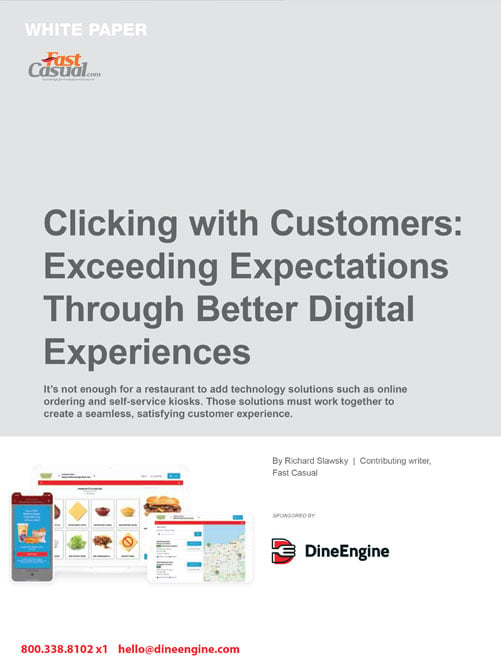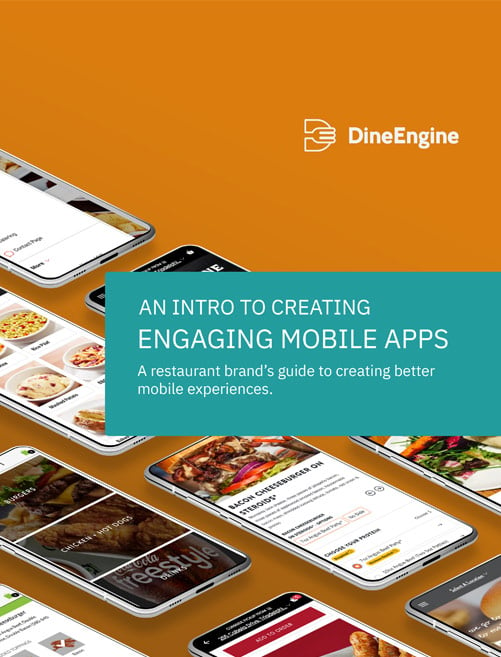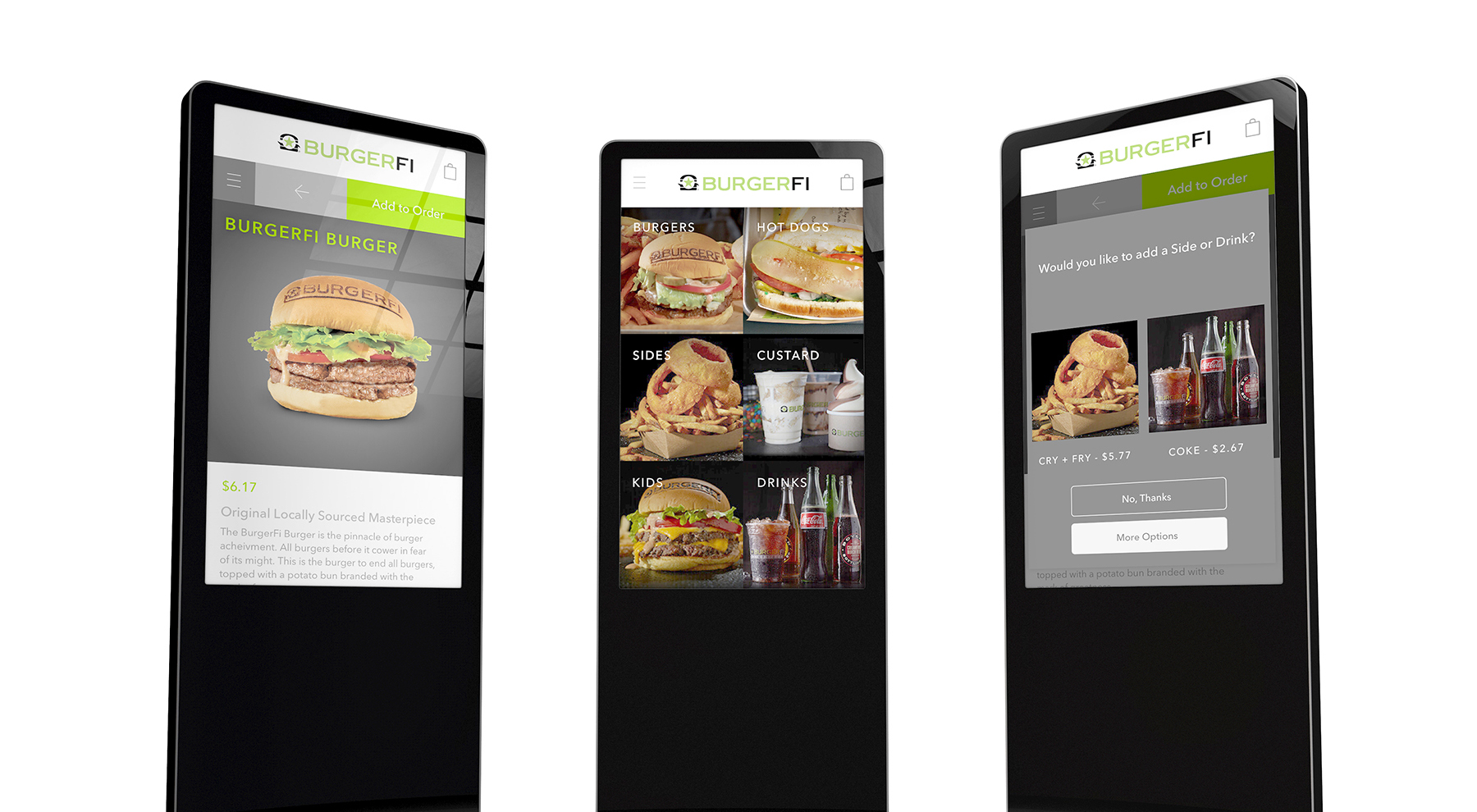Customers love convenience. If your brand is seeking to serve guests more efficiently, self-service kiosk software development will maximize checkout & ROI while providing a better ordering experience.
Guests appreciate the ability to place their order and pay for it all from one place — and the fact that they don’t have to wait in line.
Restaurants love self-service kiosks because of the reduction in labor costs. Brands can also enhance their brand and build a better reputation with their audience, especially when leveraging smart kiosks to deploy cross-sells, upsells, and loyalty & rewards promotions.
Fast food and casual eateries are the perfect places for self-service kiosks. They’ve become a common sight at well-known chains like McDonald’s.
But kiosks can be great for other types of restaurants too. It just depends on what you’re trying to accomplish.
Here’s a few things you should know about kiosk self-ordering software.
Custom Design & Development are a Must-Have
Custom design and development allows you to brand your application, make it specific to your restaurant, and deliver a great experience to your guests.
As well, it’s important that you have an app that’s tailored to your requirements, especially in terms of platforms. For instance, the ability to connect to restaurant vendor third-party APIs across all channels, in-store and out of store, seamlessly.
Custom self-service kiosk software development can help you save a lot of time and money. By seeking out a qualified technology partner to help with self-service kiosk software development, there will be no need to figure it out all on your own.
Integration Is Essential
Technology is changing so fast. Sometimes it’s easy to end up making decisions that don’t benefit you in the long haul.
For example, choosing self-service kiosk software that doesn’t integrate with your payment processing has a couple of disadvantages. The first is that you’ll probably end up with separate systems that don’t sync. The second is that your data will also spread across two systems.
These days, restaurants are seeking to merge all systems, using API integrations to create a single platform which provides AI-driven data-based insights to add competitive advantages, and make gainful digital decisions.
Creating in-store experiential kiosk experiences can assist with customer data collection. Implementing dashboards and business intelligence can help your restaurant rise above the competition.
This includes API implementations that allow smart kiosk apps to leverage AI to gather all types of data which is both operational, and client-facing.
For instance, the smart kiosk can use facial recognition to offer guests their favorite meal based on order history, provide upsells, allow the application of loyalty & rewards points.
Data can also be collected about the customer and the constituent elements surrounding the order, such as time of day, and even the weather, so upsells can focus on hot or cold beverages. This ends up creating bigger orders that bring in more revenue.
If you can’t act fast, you can bet that your competitors will get a leg up on you with self-service smart kiosk app technology.
So, be sure to seek out software that’s compatible with the other tools and platforms you’re already using. It is important to know who your customers are, and also important to provide frictionless digital web development and mobile app development that possesses a great online ordering and kiosk experience.
Custom self-service kiosk app development encourages bigger orders, and faster checkouts. This makes happier customers, who are getting what they want from your restaurant because of your smart digital technology choices.
Your Guests Come First
Custom development and integration are important. But at the end of the day, if it doesn’t serve your guests, it doesn’t make much of a difference.
Self-service kiosks should be used with the end goal of improving your customer experience. They should be deployed to make it more efficient for customers to order. And, of course, you can use upsells to add even more value to your guests.
Using a complex, flashy interface might seem like a good idea at first. But if your customers can’t figure out how to use it, it won’t matter. Employ best-practice user experience (UX) development, because simplicity and ease of use are paramount with kiosk software.
Security & Compliance are Crucial
Once installed, self-service kiosks should be considered a key touchpoint within your business.
That being the case, security is of the utmost importance. Further, you want your guests with disabilities to be able to use your software.
Choosing a company that can fully secure your transactions using cloud server management while developing PCI and ADA compliant software is a wise choice.
Using custom development to make your applications on-brand is also worthwhile.
Be Prepared to Innovate
Plan to use artificial intelligence (AI) for your restaurant. To set your brand apart from the competition, innovation is of paramount importance to create technology solutions that improve guest experiences.
Brands that innovate succeed.
Custom self-service kiosk app development should include facial or voice recognition to serve up better menu options, and mood recognition to give choices and create product offerings based on how customers feel, resulting in upsells and cross-sells which add to your ROI.
Final Thoughts
Ideally, your self-service kiosk software should be fast, convenient, intuitive, on-brand, innovative, secure, and friendly to the disabled.
It might seem like a lot to ask for, but you’re trusting your kiosks to add value to your customers. So, it makes sense to put your resources behind it.













0 Comments